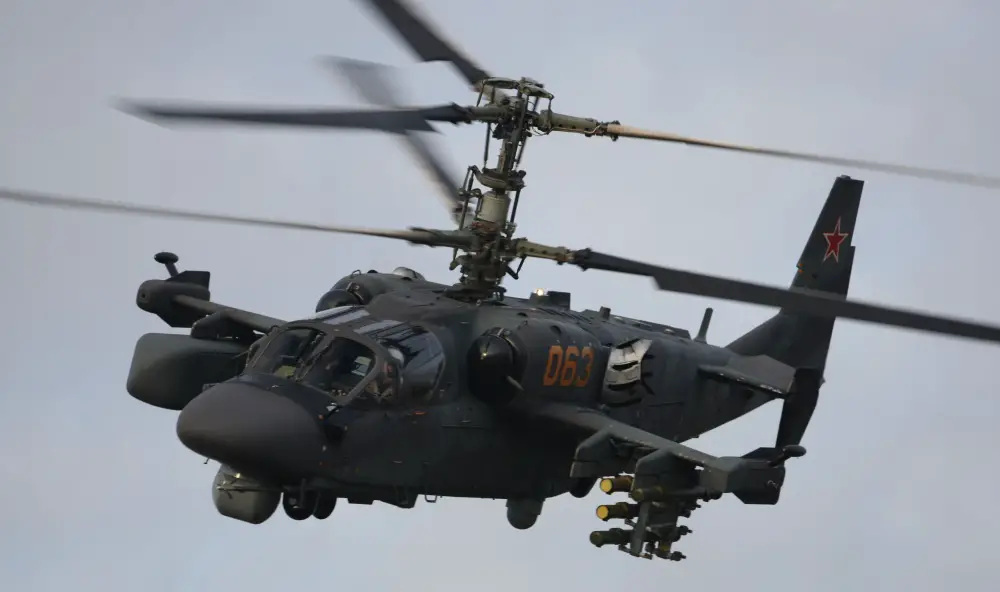First upgraded Kamov Ka-52M “Alligator” (Hokum B) attack helicopters were delivered to the Russian Army and supplies would continue this year. The Russian state information company TASS reported that the Arsenyevsky aviation plant is fully loaded with production of such helicopters. The Kamov Ka-52M is a Russian attack helicopter with the distinctive coaxial rotor system of the Kamov design bureau. The Ka-52M helicopter’s combat efficiency substantially enhanced through an upgraded sighing system that will boost its capabilities of employing armaments at night. The contract for the first 30 Ka-52Ms was signed in August 2021. A new contract was signed in August 2022. TASS has no official confirmation for this piece of information.
The new version announced by the Russian Ministry of Defence in 2018 eventually crystalized into the Ka-52M attack helicopter. 114 helicopters of this new version are to be acquired; additionally, older Ka-52s are to be upgraded to Ka-52M standard. Upgrades embodied in the Ka-52M include a modernized GOES-451M electro-optical targeting turret with an increased range, stronger undercarriage wheels, and improved cockpit ergonomics, with better adaptation to the use of night-vision goggles. The LMUR missile is added to the helicopter’s armament options. Several new radar types are being considered for the Ka-52M. A new self-protection system will also be fitted to the Ka-52M, replacing the current L370-5 Vitebsk. Lastly, the Ka-52M is adapted to work within a new battlefield command and control system.

The Kamov Ka-52 “Alligator” is a highly upgraded version of the Kamov Ka-50 “Black Shark” with a two-seat side-by-side cockpit for the Russian Air Force. The Kamov Ka-50 “Black Shark” (NATO reporting name: Hokum A) is a Russian single-seat attack helicopter with the distinctive coaxial rotor system of the Kamov design bureau. It is manufactured by the Progress company in Arsenyev. It is used as a heavily armed scout helicopter. It is the world’s first operational helicopter with a rescue ejection system. In comparison to the original Ka-50, it has a “softer” nose profile and a radar system with two antennas—mast-mounted for aerial targets and nose-mounted for ground targets. Day-and-night TV/thermal sighting system in two spherical turrets (one over the cockpit and the second under the nose) are also fitted.
The Ka-52 has the side-mounted cannon of the original Ka-50. It features six wing-mounted hardpoints compared to four on the Ka-50. To keep the weight and performance on par with that of the Ka-50, the armor and the capacity of the cannon magazine/feed were reduced. The Ka-52 Alligator’s two VK-2500 turboshaft engines allow the helicopter to operate at altitudes above 5,000m. It has a static ceiling of 4,000m, and is able to take off and land in hot climates and in high mountainous terrain. The Alligator can also operate in cold climates and icy conditions. Serial production of the Ka-52 began at the Progress Arsenyev Aviation Company plant in Arsenyev, Primorsky Krai by end of the 2008. After the completion of the state trials, the Ka-52 entered service in May 2011 with first operational units joining the Russian Air Force the same month. In February 2018, the Russian Ministry of Defence expressed an interest to purchase additional 114 Ka-52s within the new State Armament Program for 2018-2027.
















